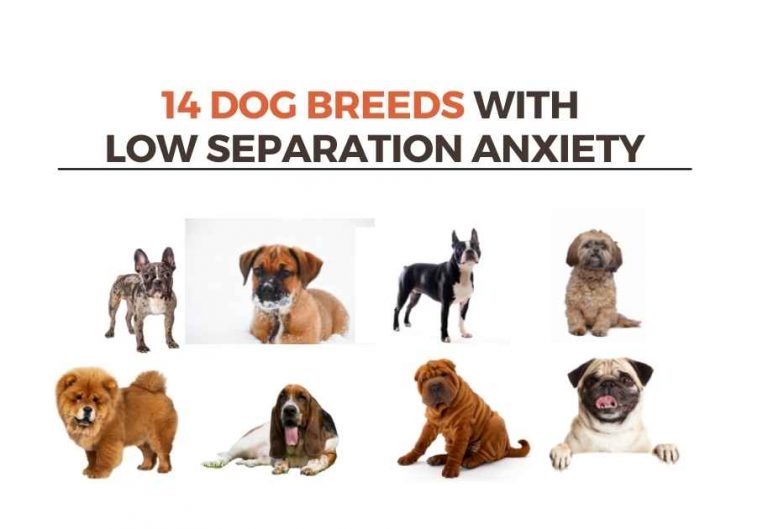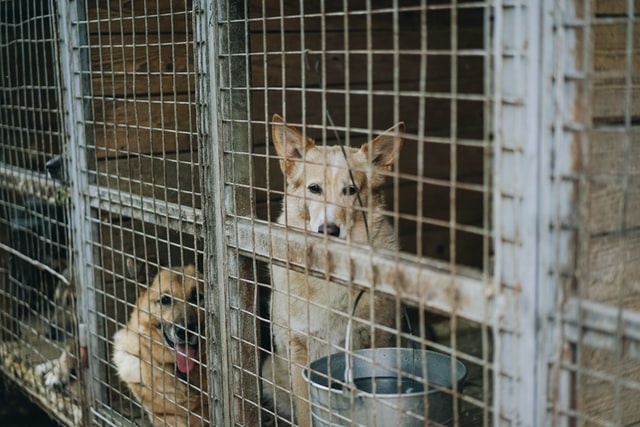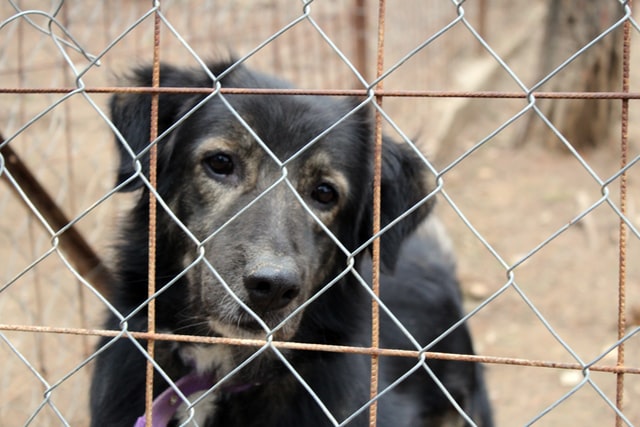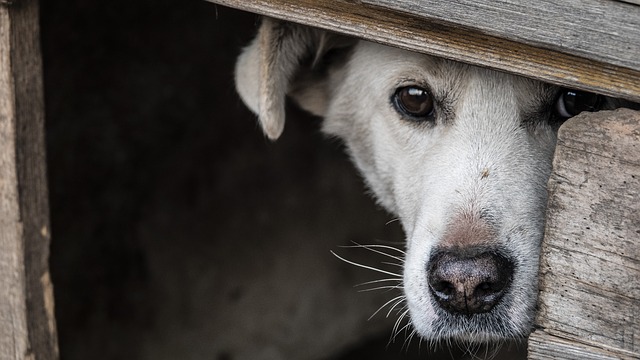Fireworks are a staple of Bonfire Night and New Year’s Eve celebrations, and they’re also becoming increasingly popular at smaller gatherings like birthday parties.
While we may like seeing the vibrant colors fill the night sky, our pets are frequently startled by the seemingly endless booms and flashes. Many dog owners understand that fireworks are stressful for their pets, so keeping them safe and calm is a top issue.
What is the cause of Dog’s Anxiety About Fireworks?
Some people are fortunate enough to report that their dog grows up and never seems to mind fireworks or thunder. However, many individuals learn that their dog is terrified of the booms, cracks, and bangs. It shows that their instincts are activated, and you may notice behaviors such as barking, whining, drooling, pacing, shaking, cowering, or worse.
They Feel Trapped
On festivals like Independence Day, fireworks are unavoidable. If the noises activate your dog’s flight reflex, he will attempt to flee the danger. Unfortunately, there’s often nowhere to flee because the booms may still be heard inside.
They Consider fireworks as a threat
Many dogs see fireworks as a threat because of their noise and unpredictability. Their fight-or-flight reaction gets triggered because of this. Your dog may bark in response to the noises or attempt to flee and hide. He may also exhibit additional anxiety symptoms such as restlessness, panting, pacing, and whining.
Fireworks are unexpected
Those firecrackers appear out of nowhere.
Each time the loud noises and flashing lights appear, they sound and look different. Furthermore, they arrive at irregular intervals, preventing dogs from becoming accustomed to them.
Do all dogs have firework anxiety?
Not all dogs get scared of fireworks, it’s vital to remember that your dog will follow your lead. If you make a big deal out of them when he isn’t afraid, he may acquire an aversion to fireworks in the future. As a result, make an effort to keep your dog quiet while also remaining calm.
Dangers of firework anxiety in dogs
Dogs with this anxiety of fireworks can be destructive and hazardous to themselves and others. If your dog is afraid of storms, there’s a strong chance he’ll be afraid of fireworks as well. All pets will react differently – some will want to be near to you and become your new bed friend, while others may hide under a bed or cower in a corner.
Dogs, for example, will often try to flee the loud noise made by fireworks and can end up hundreds of kilometers away from home. In their frenzied attempts to escape the sound, terrified dogs have been known to harm themselves severely. Jumping over or tunneling under typical containment fences, jumping through glass windows, and car accidents can all result in these injuries.
Signs that tell your dog have Fireworks Anxiety
Shaking, pacing up and down, or heavy panting are all signs that your dog is afraid of fireworks. They may also shiver, hide, or drool more than usual. Destructiveness and sudden soiling are further indicators of anxiety.
Keep in mind that just because your dog isn’t trembling or whimpering doesn’t mean they aren’t anxious; they may display their distress differently.
Dogs who are afraid of fireworks exhibit a variety of behaviors. If you’re near a fireworks display, keep an eye out for the following indicators in your dog:
- Hypersalivation
- Hides Under blankets
- Excessive barking
- Following you nervously and staying near to you at all times, seeking comfort from you.
- Excessive scratching or licking
- Trying to get away
What to do to make your dog comfortable while fireworks?
It’s crucial to keep in mind that each dog is unique. When it comes to figuring out what helps your dog, you’ll need patience and understanding. Don’t be scared to experiment with different approaches to find the finest answers for your canine companion.
Prepare a safe place
Every dog should have a secure area in his home where he can go whenever he wants. If your dog likes it, this may be his kennel, a bedroom or office, or even a heated bathroom. Place items in a safe area that your dog enjoys, such as a favorite toy or blanket. Make sure no one bothers him or pushes him to leave while he is there.
Provide comfort
Many dog owners believe that comforting a terrified dog will exacerbate the situation. This is not the case. When you soothe your dog when he is afraid, you are reassuring him that you are there to help. You should console a fearful dog in the same way you would a sobbing child. Your soothing presence, paired with gentle, calm pets, may reassure your pal.
Distract with toys
If you know fireworks are on the horizon, give your dog a nice treat-filled toy before they start. Alternatively, play some tug-of-war with him. Encourage him to gnaw on a favorite bone or participate in some fun trick training. Provide him with chewing or licking choices as the pyrotechnics begin, such as a Kong full or bowl of treats and ice cubes.
Create some noise
Some dogs prefer relaxing sounds such as a fan’s hum or the muttering sound from a television. You can play quiet classical music or buy a white noise machine specifically for pets. Make sure to turn these on before the booms begin, and they remain on until the noises have stopped.
What Can I Give My Dog to Make Him Feel Better With Fireworks Anxiety?
There are medications that your veterinarian can give to your dog to aid with anxiety, but they should only be used as a last resort. Speak with your veterinarian ahead of time so they can discuss the best solutions for your pet.
There are also over-the-counter devices like soothing collars and plugins that claim to provide relaxing massages to assist your dog feel calm during stressful or anxious times.
Thundershirts, also known as pressure vests, have been demonstrated in studies to have a soothing effect by applying steady pressure to your dog’s core.
You may be surprised to find that not all dogs have firework anxiety. In fact, most of them don’t! However, if your dog does show signs of fireworks anxiety it is important for you and your pet to take the necessary precautions. Steps like getting a muzzle or calming collar or anxiety vest or Thundershirts can help make him feel more comfortable during this time period. Another thing you might want to do is give him something with natural ingredients (like Valerian Root) which studies suggest bits of help reduce feelings of stress in pets. If these ideas sound like they could work for your pup but you still need some advice on how best to implement them contact your vet ASAP.
Also Read:
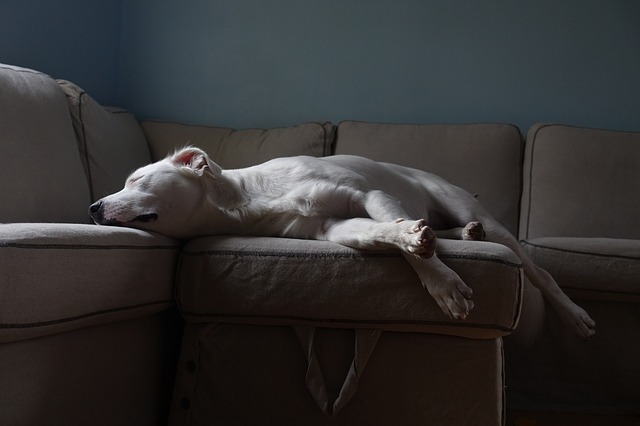
![[20+ GIF] Hilarious Scared, Nervous, and Anxiety Dog Memes that Make You Laugh](https://doghealthknowhow.com/wp-content/uploads/2021/11/Scared-Nervous-and-Anxiety-Dog-Meme-768x529.jpg)
